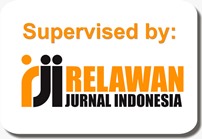THE IMPORTANT ROLE OF LEADERSHIP STYLE IN ORGANIZATIONAL CHANGE (CASE STUDY AT PT. KARWIKARYA FOREIGN TOURISTS HOUSE TANJUNG PINANG)
Abstract
This research aims to examine the important role of leadership style in organizational change (Case Study at PT. Karwikarya Wisman Graha Tanjungpinang). Organizational change is a multifaceted process involving multiple stakeholders, from employees to leadership, and it has major implications for the overall success of the organization. The leadership style applied in today's digital era can have a significant impact on employee behavior, both positively and negatively. Through qualitative research, with library research, the author collects data by studying and understanding data that is closely related to the problem from books, theories, notes and documents. The findings found that leadership in organizations is described as important, regardless of whether the change directly impacts employees or not, highlighting the need to consider a broader organizational perspective. Members underscored the importance of servant leadership, collaborative leadership, and open leadership approaches, emphasizing empathy, humility, and adaptability in the face of change. In an era of rapid digital transformation, leadership styles are evolving to include technological competency and an understanding of digital strategy .
Keywords: Leadership styles, Organizational change, Digital Transformation.Full Text:
PDFReferences
Baldomir, J., & Hood, J. P. (2016). Servant Leadership as a Framework for Organizational Change. International Leadership Journal , 8 (1), 27–41.
Correani, A., De Massis, A., Frattini, F., Petruzzelli, A.M., & Natalicchio , A. (2020). Implementing a Digital Strategy: Learning from the Experience of Three Digital Transformation Projects. California Management Review , 62 (4), 37–56. https://doi.org/10.1177/0008125620934864
Cortellazzo , L., Bruni, E., & Zampieri, R. (2019). The Role of Leadership in a Digitalized World: A Review. Frontiers in Psychology , 10 . https://doi.org/10.3389/fpsyg.2019.01938
Dandalt , E. (2021). The cyberwork performance of managers in education. Journal of Management Development , 40 (3), 151–167. https://doi.org/10.1108/jmd0120200011
Dierendonck , D. V, Stam, D., Boersma, P., Windt, N.D., & Alkema, J. (2014). Same difference? Exploring the differential mechanisms linking servant leadership and transformational leadership to follower outcomes. The Leadership Quarterly , 25 (3).
Han, J., Yoon, J., Choi, W., & Hong, G. (2021). The effects of shared leadership on team performance. Leadership & Organization Development Journal , 42 (4), 593–605. https://doi.org/10.1108/lodj0120200023
Hensellek , S. (2020). Digital leadership: A framework for successful leadership in the digital age. Journal of Media Management and Entrepreneurship , 2 (1), 55–69.
Imran, F., Shahzad, K., Butt, A., & Kantola, J. (2020). Leadership competencies for digital transformation: evidence from multiple cases. Advances in Human Factors, Business Management and Leadership . Springer. https://doi.org/10.1007/9783030507916_11
Khaw, T.Y., Teoh, A.P., Khalid, S.N.A., & Letchmunan , S. (2022). The impact of digital leadership on sustainable performance: a systematic literature review. Journal of Management Development , 41 (9), 514–534. https://doi.org/10.1108/jmd0320220070
Kim, J. Y., Honeycutt, T., & Morzuch , M. (2017). Transforming Coalition Leadership: An Evaluation of a Collaborative Leadership Training Program. The Foundation Review , 9 (4). https://doi.org/10.9707/19445660.1385
Li, C. (2010). Open Leadership – How Social Technology Can Transform the Way You Lead . Jossey-Bass.
Ligon, K. V, Stoltz, K. B., Rowell, R. K., & Lewis, V. J. (2019). An Empirical Investigation of the Kelley Followership Ques tionnaire Revised. Journal of Leadership Education , 18 (3).
Liu, H., Gao, S., Xing, H., Xu, L., Wang, Y., & Yu, Q. (2021). Shared leadership and innovative behavior in scientific research teams: a dual psychological perspective. Chinese Management Studies , 16 (2), 466–492. https://doi.org/10.1108/cms0220200070
Mihardjo , LWW, Sasmoko , S., Alamsjah , F., & Elidjen , E. (2019). Digital leadership role in developing business model innovation and customer experience orientation in industry 4.0. Management Science Letters , 9 (11), 1749–1762. https://doi.org/10.5267/j.msl.2019.6.015
Misdiana , M., Iranita , I., & Kurniawan, R. (2018). Influence of Leadership Style , Motivation Work and Environment Work To Satisfaction Work Employees at PT. Karwikarya Foreign tourists House Tanjung Pinang . Ark Innovation , 2 (1), 41–49.
Musaigwa , M., & Kalitanyi , V. (2024). Effective leadership in the digital era: an exploration of change management. Technology Audit and Production Reserves , 1 (4(75)), 6–14. https://doi.org/10.15587/2706-5448.2024.297374
Nasution, RA, Arnita, D., Rusnandi , LSL, Qodariah , E., Rudito , P., & Sinaga, MFN (2020). Digital mastery in Indonesia: the organization and individual contrast. Journal of Management Development , 39 (4), 359–390. https://doi.org/10.1108/jmd0320190081
Nciulescu , R. S., & Beldiman , E. (2019). The Issue of Leadership Styles in the Military Organization. Land Forces Academy Review , 24 (1), 54–60.
Suwanto , S., Sunarsi , D., & Achmad, W. (2022). Effect of Transformational Leadership, Servant Leadership , and Digital Transformation on MSMEs Performance and Work Innovation Capabilities. Central European Management Journal , 30 (4), 751–762. https://doi.org/10.57030/23364890.cemj.30.4.71
DOI: https://doi.org/10.31846/jae.v13i1.792
Refbacks
- There are currently no refbacks.

This work is licensed under a Creative Commons Attribution-NonCommercial-NoDerivatives 4.0 International License.
e-Jurnal Apresiasi Ekonnomi Indexed by:












